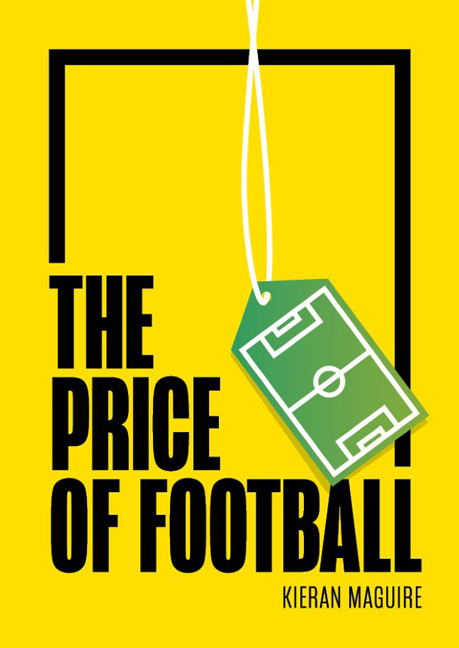14 - Football finance in a post-Covid-19 world and Project Big Picture
Published online by Cambridge University Press: 20 December 2023
Summary
Crises creates opportunities. The global Covid-19 pandemic has hit football because the sport, despite how it may like to think of itself, is part of the entertainment industry, which alongside travel, tourism, the arts, hospitality and leisure, has been disproportionately impacted by Covid-19 and football has been caught in the headlights.
Many football clubs, especially those who take a casino-style approach to their finances, gambling on success through promotion or unearthing talented players who can be sold for large sums, have faced significant financial challenges. Whether or not all clubs will survive the fall out from Covid-19 is uncertain, but the historic lack of governance and financial control from both clubs and governing bodies has made clubs highly vulnerable even to a modest economic headwind. What has been experienced in 2020 has been far more than a modest challenge.
The business model used by most clubs of generating revenue through matchday, broadcasting and commercial sales has suffered due to the lockdown rules introduced in many countries. In relation to matchday income, matches which have been played since the pandemic struck have taken place, if at all, behind closed doors. An organization such as the Premier League has some insulation because overall only about 13 per cent of revenue usually comes from this source. Even so, clubs such as Manchester United, Spurs and Arsenal can typically generate £4 million or more from hosting a single game, so matches taking place in eerily empty stadiums are costing clubs significant sums.
Clubs outside of the Premier League are more dependent on matchday income as a proportion of their total income (see Figure 14.1), with much higher percentages of revenue being generated from this source in the lower leagues. These clubs have only managed to survive the initial consequences of the pandemic through a combination of short-term government employment support schemes, advances on broadcasting revenues, generous owners and fans raising money or forgoing refunds for sums due to them in respect of tickets purchased in advance of matches being played.
The UK government had initially insisted that matches take place behind closed doors, but as infection rates decreased the government approved a tentative phased return of fans with some pilot matches – “Project Restart” – when the 2020/21 season resumed.
- Type
- Chapter
- Information
- The Price of FootballUnderstanding Football Club Finance, pp. 211 - 220Publisher: Agenda PublishingPrint publication year: 2021



